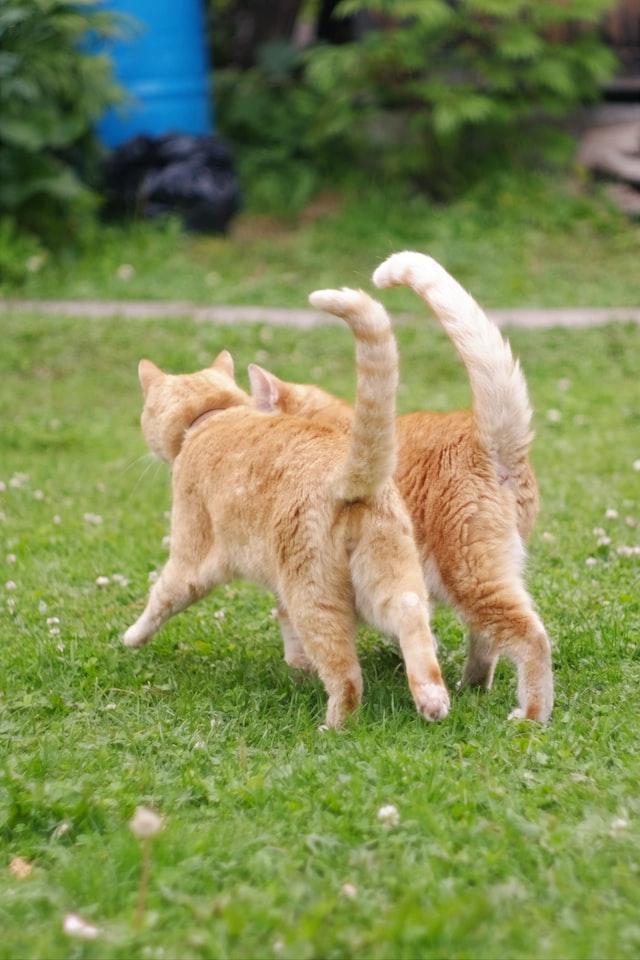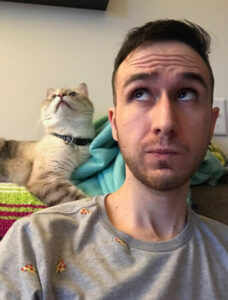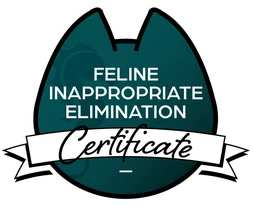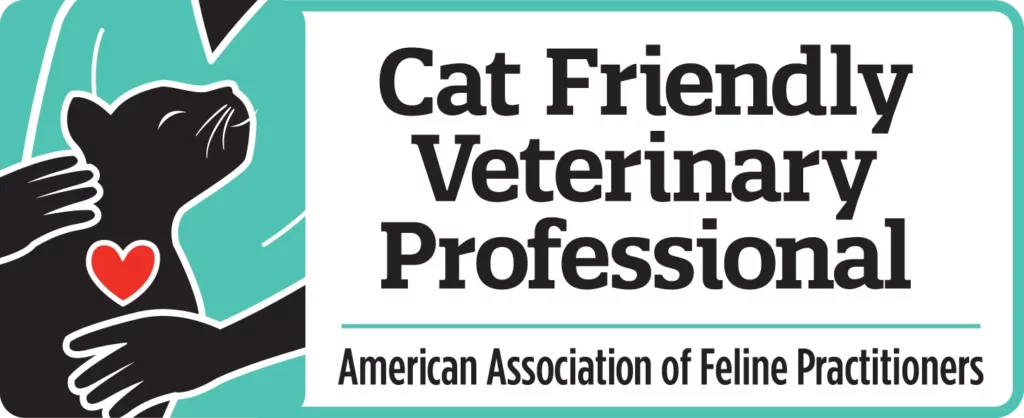The most common behavior concern I work with clients to solve is fighting cats. The reasons for it vary, but today I’m going to focus on one of the more unfortunate reasons as many well meaning cat parents end up in a challenging situation because of it.
When you have a bonded pair of cats, it can be tough on everyone when one of the cats dies. Grieving the loss of a cat is very challenging and the amount of distress can be similar to losing a beloved human. For cats, they can exhibit similar behaviors to humans when they are depressed or grieving.
It’s natural that people would want to comfort their cat by getting them a companion. But is that a good idea or is it something that mostly helps us as humans grieve? While you’re want to think about your own wellbeing and if you are ready to get another cat, you’ll also want to carefully consider if your remaining cat actually wants a companion.
Cat social relationships are complex
If you haven’t tried to introduce two cats before, it is a complicated process. Cats don’t inherently like other cats, though there is some variability based on their early socialization, genetics, and past experiences with cats. That said, some cats can form really close bonds with other cats. If these cats are separated, they can exhibit unwanted behaviors and signs of stress.
What can be concluded from these seemingly contradictory facts? Cats like some other cats, but not all other cats. There are a lot of factors that go into whether or not two cats will get along. While there are always exceptions to every rule, generally you want to have cats with a good personality match as they are more likely to get along.
Did my cats actually like each other?
Another thing to consider is how your relationship between your cats actually was. I don’t want to crush anyone’s idea of their cats being friends, but I see it too frequently where cats are labeled as being bonded but they tolerate each other at best. Your cats may have gotten along enough to tolerate each other, but may not have actually liked each other.
There are a few signs that your cats may have liked each other or just coexisted like roommates. Cats that choose to spend time with each other and not just because they both want to use a particular resource like a warm lap or a cozy resting spot are more likely to actually like each other. If they tended to walk around each other rather than being close by, they probably weren’t actually friends. Other signs of friendship are mutual grooming, playing together involving mutual chasing, positive body language, and a lack of regular hissing or growling.

This isn’t an exhaustive list, but it’s a good place to start evaluating the relationship your cats had.
Does my cat want another friend?
Since cats aren’t inherently interested in socializing with every other cat and you’ve evaluated your cat’s relationship with their late brother or sister, the next question you should consider is if your cat actually wants to have a feline friend. Your cat may have been friends with one cat, but they may still not prefer the company of other cats.
If your cat has gotten along with other cats in the past, for example, while at a shelter or in foster care, they may like other cats. If they didn’t really have much experience with cats other than their one sibling, they may prefer being an only cat.
Even if your cat did really enjoy the company of their sibling, they may be missing that specific cat and not really want much to do with other cats. Think about it like this: decide who the most important people in your life are. It could be a partner, a close friend, or a family member.
Now imagine if something were to happen to one of them and someone were to come in and replace them with another person. Would that be the same for you? Probably not. They might get it right and you may really like that person, but there’s also a chance they wouldn’t be someone you want to spend time with. People we’re bonded to aren’t interchangeable to us. The same applies to cats; other cats aren’t interchangeable. Your cat may be missing their friend, but not other cats.
How do you pick out a second cat?
If you’ve evaluated the situation, you may have come to the conclusion that your cat actually does want another cat. It’s also perfectly reasonable to decide that you want another cat! Just keep in mind that if your cat really doesn’t like other cats, it may be the kinder thing to let them live out their remaining time in peace even if you really, really want another cat. You’ll want to carefully select a cat that is going to be more likely to get along with your cat if that’s the case.
While there are no guarantees that two cats will or will not get along, there are a few things you can do to increase the chances of your cat and the new cat getting along. You’ll want to make sure the cats are introduced properly as introductions gone wrong are a great way to end up needing my services. You may want to add a Feliway Multicat diffuser to reduce tension between the cats and add in more cat towers and scratching posts.
More important, though is selecting a cat that’s a good personality match. If you have a cat whose personality clashes with the new cat, for example, one cat is really shy and the other one is extremely outgoing, neither cat is going to be happy. This may lead to fighting and a more stressful situation. It’s a good idea to meet the new cat before you bring them home.
The age of your cat is another consideration. While there are all sorts of success stories of cats of wildly different temperaments getting along well with each other, in my experience at least half of the intercat conflict inquiries I get are from an older resident cat and a kitten. Kittens are wild balls of energy and an older cat is less likely to be able to keep up with them. If you want a kitten, you may be better off waiting until your resident cat passes.
What are some alternatives to a kitten? Getting a cat around the same age as your current cat or a cat that’s at least a few years old may be more likely to work out if your cat is older. They’ll not only be less work for you, but be more likely to get along with your resident cat.
Alternatives to getting another cat
If it doesn’t sound like getting another cat is a good idea and your cat seems down, you can still help support them. Make sure they are getting lots of positive attention from you and that their basic needs are being met. Cats love predictability so setting a regular routine or doing clicker training with them can help boost their mood.
Many cats don’t get enough mental or physical stimulation. Anything you can do to get your cat moving, mind and body, will help. A food puzzle or food dispensing toy are great ways to satisfy your cat’s instinct to hunt. Growing cat grass can give them some enrichment in their environment. You can also consider some cat drugs like catnip, silvervine, or valerian root to put your cat into a really good mood.
Don’t forget about actively playing with your cat, either! Cats like being able to go through a full hunt cycle where they get to stalk their prey, catch it, and “kill” it throughout the day. Using a wand toy to play with your cat for 10-15 minutes 2-3 times per day will help keep them from being bored.
Overall, just make sure your cat’s needs are being met. Don’t overwhelm them or force them to interact, but making sure their life is still filled with fun, good things will help not only them grieve the loss of their sibling, but it will help you do the same.










